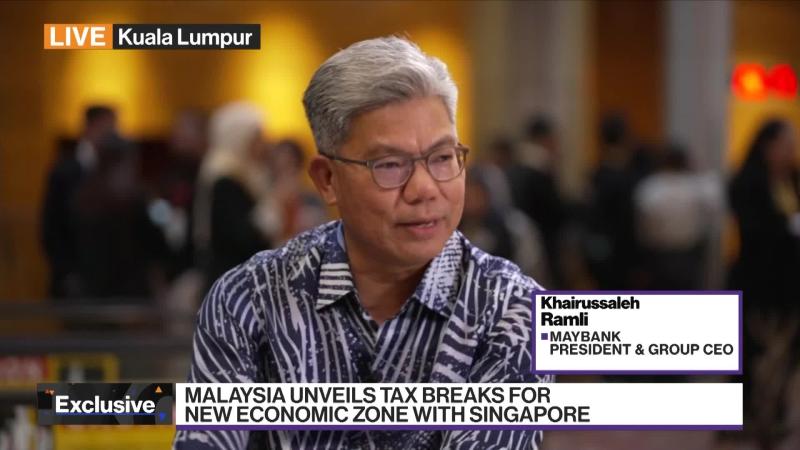Proposed Texas Legislation Would Ban Minors From Social Media Platforms

Table of Contents
The Bill's Specific Provisions and Proposed Restrictions
The proposed Texas legislation aims to restrict access to social media platforms for minors. While the exact wording of the bill may evolve, the core concept involves prohibiting individuals under a certain age (likely 16 or 18) from creating and maintaining accounts on major social media platforms.
- Specific Age Restrictions: The bill's final version will specify the exact age limit, with possibilities ranging from under 16 to under 18. This is a crucial detail that will significantly impact the number of affected users.
- Proposed Enforcement Mechanisms: Enforcement mechanisms could include hefty fines levied against social media companies that fail to comply with age verification and account removal protocols. Furthermore, parental liability could be explored, holding parents responsible for their children's access to these platforms.
- Exemptions: The bill might include exceptions for educational platforms used for schoolwork or professional networking sites utilized for career development. These carve-outs would aim to balance restrictions with the need for online learning and professional opportunities.
- Age Verification Process: A robust age verification process is a key challenge. The bill would need to define how platforms effectively verify users' ages, addressing potential vulnerabilities to fraudulent identification. This could involve utilizing existing identification systems or developing new technologies.
Arguments in Favor of the Proposed Ban
Proponents of the bill emphasize the numerous risks minors face on social media, citing significant concerns about mental health, safety, and privacy.
- Mental Health Concerns: Studies increasingly link social media use to heightened anxiety, depression, body image issues, and feelings of inadequacy, particularly among young people. The curated perfection often presented on these platforms can negatively impact self-esteem and mental well-being.
- Cyberbullying and Online Harassment: Social media platforms can unfortunately be breeding grounds for cyberbullying and online harassment, leaving minors vulnerable to emotional distress and potential long-term psychological harm.
- Data Privacy Violations and Exploitation: Minors often lack the understanding to fully comprehend the implications of sharing personal data online. This vulnerability exposes them to the risks of data breaches, identity theft, and exploitation by malicious actors.
- Impact on Academic Performance: Excessive social media use can significantly detract from schoolwork, leading to lower grades and reduced academic achievement. The constant distractions and notifications can disrupt focus and learning.
- Addiction and Excessive Screen Time: Social media platforms are designed to be highly engaging, leading to addictive behaviors and excessive screen time, negatively impacting physical and mental health.
Arguments Against the Proposed Ban
Opponents of the legislation highlight several potential downsides and unintended consequences.
- Freedom of Speech Concerns: Critics argue that the ban infringes upon minors' freedom of speech and expression, limiting their access to vital online communication channels.
- Impact on Social Connection and Community Building: Social media platforms are important tools for social connection and community building, especially for young people. Restricting access could isolate minors and limit their ability to form relationships.
- Difficulty of Enforcement and Potential Loopholes: Effectively enforcing such a ban would be immensely challenging. Minors could easily circumvent restrictions by using VPNs or creating fake accounts, making enforcement ineffective.
- Potential for Increased Use of Unmonitored Platforms: A ban on major platforms might simply drive minors to less regulated and potentially more dangerous online spaces.
- Economic Impacts on Social Media Companies: The legislation could have significant economic repercussions for social media companies operating in Texas.
Potential Impact on Texas Families and the Tech Industry
The proposed Texas social media law would have far-reaching consequences for Texas families and the tech industry.
- Impact on Families' Ability to Communicate with Children: The ban could complicate communication between parents and children, particularly if the platforms are used for family coordination or emergency contacts.
- Potential Legal Challenges: The legislation is likely to face numerous legal challenges, questioning its constitutionality and its impact on freedom of speech and other rights.
- Response from Tech Companies and Advocacy Groups: Tech companies and advocacy groups have expressed concerns about the feasibility and potential unintended consequences of the ban.
- Comparison to Similar Legislation: The proposed bill could be compared to similar legislation in other states or countries, analyzing their effectiveness and impact.
The Current Status of the Legislation and Next Steps
As of [Insert Current Date], the proposed Texas social media ban for minors is [Insert Current Status, e.g., under review by a committee, scheduled for a vote].
- Current Status: Clearly state the current status of the bill within the legislative process.
- Timeline for Potential Passage or Rejection: Provide a timeline if available, indicating potential dates for votes and expected outcomes.
- Opportunities for Public Comment: Inform readers of opportunities to participate in the legislative process, such as public hearings or online comment platforms.
Conclusion: The Future of Social Media Access for Texas Minors
The proposed Texas social media ban for minors presents a complex issue with significant implications for both young people and the broader society. While concerns about minors' safety and mental health on social media are valid, the potential drawbacks of restricting access, including enforcement challenges and freedom of speech concerns, must be carefully considered. The debate surrounding this legislation underscores the urgent need for a nuanced approach to regulating social media's influence on young people's lives. Stay informed about the progress of this crucial legislation and make your voice heard regarding this proposed Texas social media ban for minors. Contact your state representatives today to express your opinions on this significant issue impacting minors' social media use in Texas. Understanding the evolving Texas social media law is crucial for parents, educators, and lawmakers alike.

Featured Posts
-
 First Practice Session In Monte Carlo Affected By Rain For Sinner
May 20, 2025
First Practice Session In Monte Carlo Affected By Rain For Sinner
May 20, 2025 -
 Schumacher Bunic O Noua Generatie In Familia Legendarului Pilot
May 20, 2025
Schumacher Bunic O Noua Generatie In Familia Legendarului Pilot
May 20, 2025 -
 Maybank Facilitates Significant Economic Zone Investment 545 Million
May 20, 2025
Maybank Facilitates Significant Economic Zone Investment 545 Million
May 20, 2025 -
 T Ha Epistrepsei O Giakoymakis Sto Mls I Apopsi Ton Eidikon
May 20, 2025
T Ha Epistrepsei O Giakoymakis Sto Mls I Apopsi Ton Eidikon
May 20, 2025 -
 Henriksens Mainz Journey A Comparison To Klopp And Tuchel
May 20, 2025
Henriksens Mainz Journey A Comparison To Klopp And Tuchel
May 20, 2025
